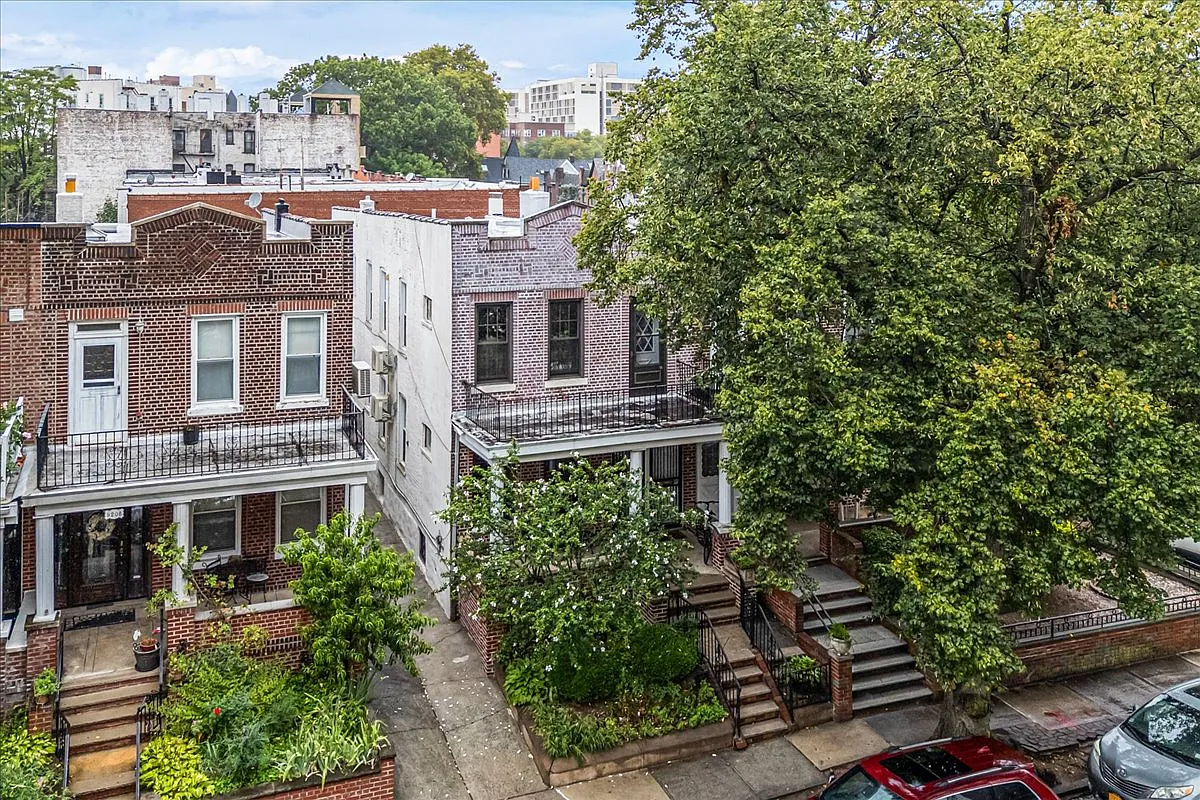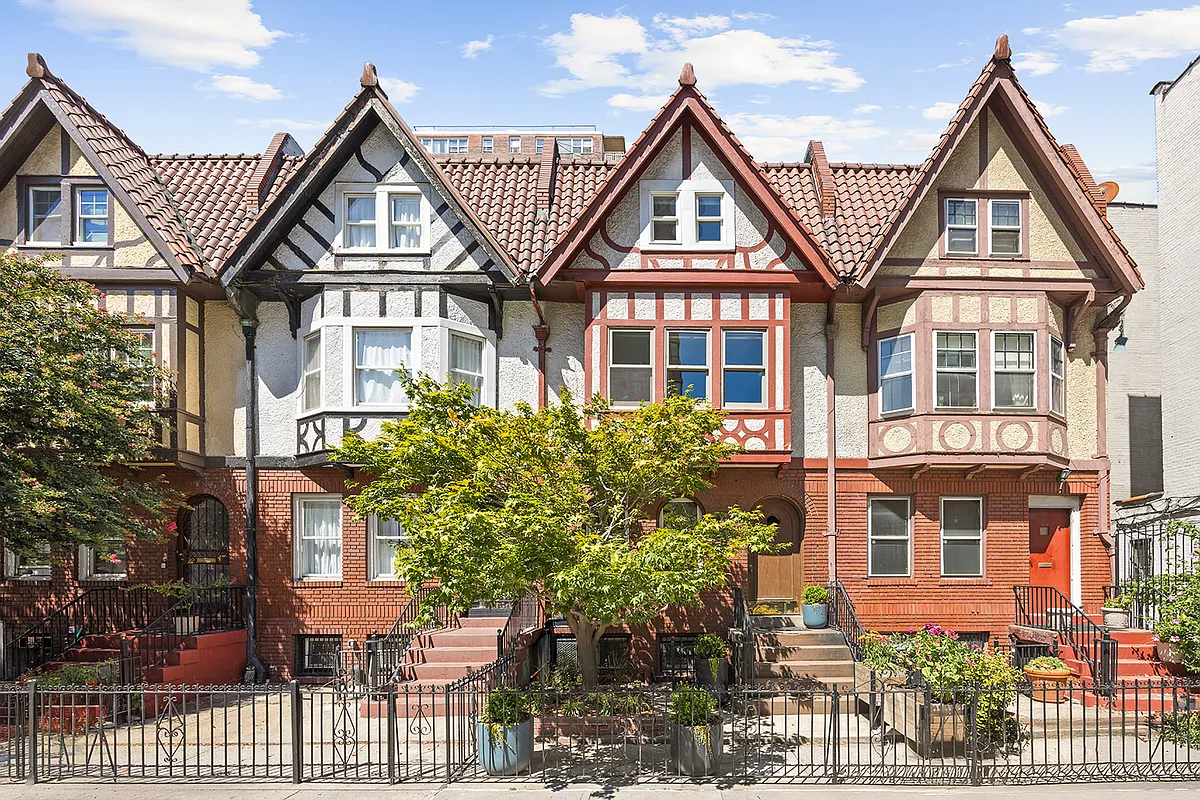Open House Picks
Carroll Gardens 391 Union Street Halstead Sunday 1-3 $2,200,000 GMAP P*Shark Prospect Lefferts Gardens 66 Midwood Street Corcoran Sunday 12-1:30 $1,400,000 GMAP P*Shark Windsor Terrace 619 Greenwood Avenue Warren Lewis Sunday 12-2 $985,000 GMAP P*Shark Bedford Stuyvesant 305 Stuyvesant Avenue Corcoran Sunday 2-3 $695,000 GMAP P*Shark

 Carroll Gardens
Carroll Gardens
391 Union Street
Halstead
Sunday 1-3
$2,200,000
GMAP P*Shark
 Prospect Lefferts Gardens
Prospect Lefferts Gardens
66 Midwood Street
Corcoran
Sunday 12-1:30
$1,400,000
GMAP P*Shark
 Windsor Terrace
Windsor Terrace
619 Greenwood Avenue
Warren Lewis
Sunday 12-2
$985,000
GMAP P*Shark
 Bedford Stuyvesant
Bedford Stuyvesant
305 Stuyvesant Avenue
Corcoran
Sunday 2-3
$695,000
GMAP P*Shark





You people live in such a tiny little bubble, and yet you seem to think you know what everyone is doing and why!! I’m a graphic designer and my husband is a film editor. All of our friends are in creative fields. Half of them have moved to the suburbs in the last few years and love it. Many of the others are considering it. We are looking in Brooklyn and the northern burbs and are very much on the fence. Money is part of the issue, but not at all the whole story. For us, and many of our friends, the pull of the far burbs is a quieter more normal pace, a less pressured life for our kids, and being close to real nature (which is critical for kids!). There’s also the usual reasons of more space and better public schools. You can all poo-poo that and rant about how the burbs are dying, but the fact is that many creative city people are leaving–partially for money and partially for a saner life. That’s why there is practically no middle class left in the city! You can hate that and you can deride it, but it is still the truth.
Montrose, I realized that I hadn’t addressed the issue of Blacks lagging behind their white counterparts and was going to write another post but you eloquently stated what I was thinking in your post. Thanks. Just an additional point, I have found that among most civil servants Blacks are generally better educated than their white counterparts. My father worked as a Police Officer in the 60’s and 70’s and put his Law degree into practice when he retired. I know people that I went to college with who took civil service jobs with the police, corrections, transit, etc… instead of going into private industry. Historically many college educated Blacks have taken civil service jobs because there was no discrimination in hiring. We all know that the opportunities for Blacks have gotten better in the private sector but there is always room for improvement.
Twinkie?
“we all know blacks in general are not up to the same level in terms of wealth building and income or education levels as their white counterparts”. Guest at 12:44
Now you know I have a problem with a broad generalization like that.
WE ARE NOT A MONOLITHIC COMMUNITY, FOR GOD’S SAKE. Just taking it from the way you stated it, it is not true that the COUNTERPARTS of white achievers lack or fall behind in any way. Black ivy league educated strivers do as well as white ivy league educated strivers. Sure, if you compare a white Harvard grad to a black high school grad in terms of earning power, there is a discrepancy. But the same can be said for a Black Harvard grad and a white high school grad.
If you want to go by numbers alone, of course more white people are doing better than black people, they don’t call us minorities for nothing, there are less of us. Try going to Hinterland USA, and you will see huge amounts of white people underachieving right and left. But back to your comment-
I am well aware of the vast number of black people who are not even on the economic ladder of success, and much needs to be done to raise up hope and opportunities. But when we play on an equal playing field, and that is not the rarity it once was, we do just as well as anyone. We’re not “behind” anyone.
Please do not condescend, even in the name of understanding the historical context of our struggle and rise in this country. I’m not saying you are completely wrong about the movement of black people to the suburbs, even affluent burbs. 1:48 gives some excellent reasons for that, too. Given equal opportunity to become better educated, have lucrative careers, and succeed along with white and other Americans, we certainly don’t follow anyone.
“More and more Black families value the suburban life.” Did it ever occur to you that Blacks leave for the suburbs for the same reasons as Whites? THEY CAN’T AFFORD THE CITY!!! I have many friends who would have loved to stay in the city and who would have no problem purchasing homes in Bed-Stuy, Ft. Greene, Harlem, Ditmas Park, etc.. if it were affordable and there were better educational opportunities for their children. Many of my friends ended up in the burbs because their children have access to college prep courses, music, art and sports programs through school and the home prices were affordable. Many come back to the city every week to visit family and worship in the urban churches and mosques that have long histories in urban communities and are still anchors in those now gentrifying communities. I was fortunate enough to be able to afford to stay in the city where my kids go to private school and I pay for music lessons. Friends with similar incomes have stayed in the city as well. As far as the trend started in the 1980’s in the migration back South, again affordability. They needed affordable housing, near family and good schools but did not necessarily want their children to grow up in an all white Northern suburb. Their are middle class and upper middle class suburbs starting in Maryland where the majority of the residents are Black. Atlanta is a prime example of this. This choice doesn’t have to do with racism but the need to provide positive Black role models for children. Of course many of our parents who were born in the South in the 30’s & 40’s moved back South after retirement and many adult children followed them.
I’m 40, 1:39 and consultants often lean their recommendations towards situations that ensure increased hiring of consultants. Consultants are overused and overrated.
The bottom line is that New York City is a world capital and we are in the midst of a worldwide boom. Here in the US we are in the midst of a credit crunch which is rapidly being addressed by lowering the prime lending rate and economic stimulus packages, while unemployment and inflation remain relatively low. The end result is that foreigners continue to flock to Manhattan, because it is after all; Manhattan, while New Yorkers who are not in any mood to be displaced are sitting put in Brooklyn or Queens.Just as Americans have been buying pied a terres in Paris since the Jazz age, newly minted Russian and Mid-East millionaires are doing the NYC thing. House hunters in Brooklyn’s brownstone neighborhoods are competing with Manhattanites over low inventory; thus the owners are digging in and stable housing prices are the result. Silly folks posting here about some “meltdown” just don’t get the larger picture involved. Sure some of the panic may apply to suburbs of Houston or DesMoines, but it’s simply a different animal here in NYC.
I disagree with you 1:34 but I have to go shopping now. I have a historical perspective that I think you do not and know many examples of the trends cited based not only on personal observation but through conversations with people that are very high level at consulting firms.
Your defensiveness leads me to believe that you are young.
An economic downturn in a fringe area doesn’t mean utter chaos erupts, people running in the streets throwing bombs. Hilarious. If that happens, everybody has something to worry about, not just those who own homes in “the fringe”.
By the way, the ability to telecommute was the same 5 years ago as it is now or 5 years from now and people STILL chose wholeheartedly to remain inside NYC. There’s no indication it’s a growing trend to leave the city and telecommute. Your theory is based in nothing.
Plus we get the same tax advantages with our home office in NYC than we’d get in the suburbs. So don’t know what you are talking about. But I guess you mean for people who work in an office here but would work from home if they moved outside of the city? That was a whole concept everyone thought would happen several years ago, but never did on any large scale. People in corporate offices are raelly expected to go to the office. Even if they are *allowed* to work from home some days, it’s frowned upon and they end up not fitting into the company culture as well. They’re odd men out a lot of times. I have never seen that work out well for people in their careers. Slower promotions or none at all. I know people who have no reason to have to go into the office for the work they do, and their company insists they do. It’s so 90’s to anticipate a big telecommuter workforce like that.